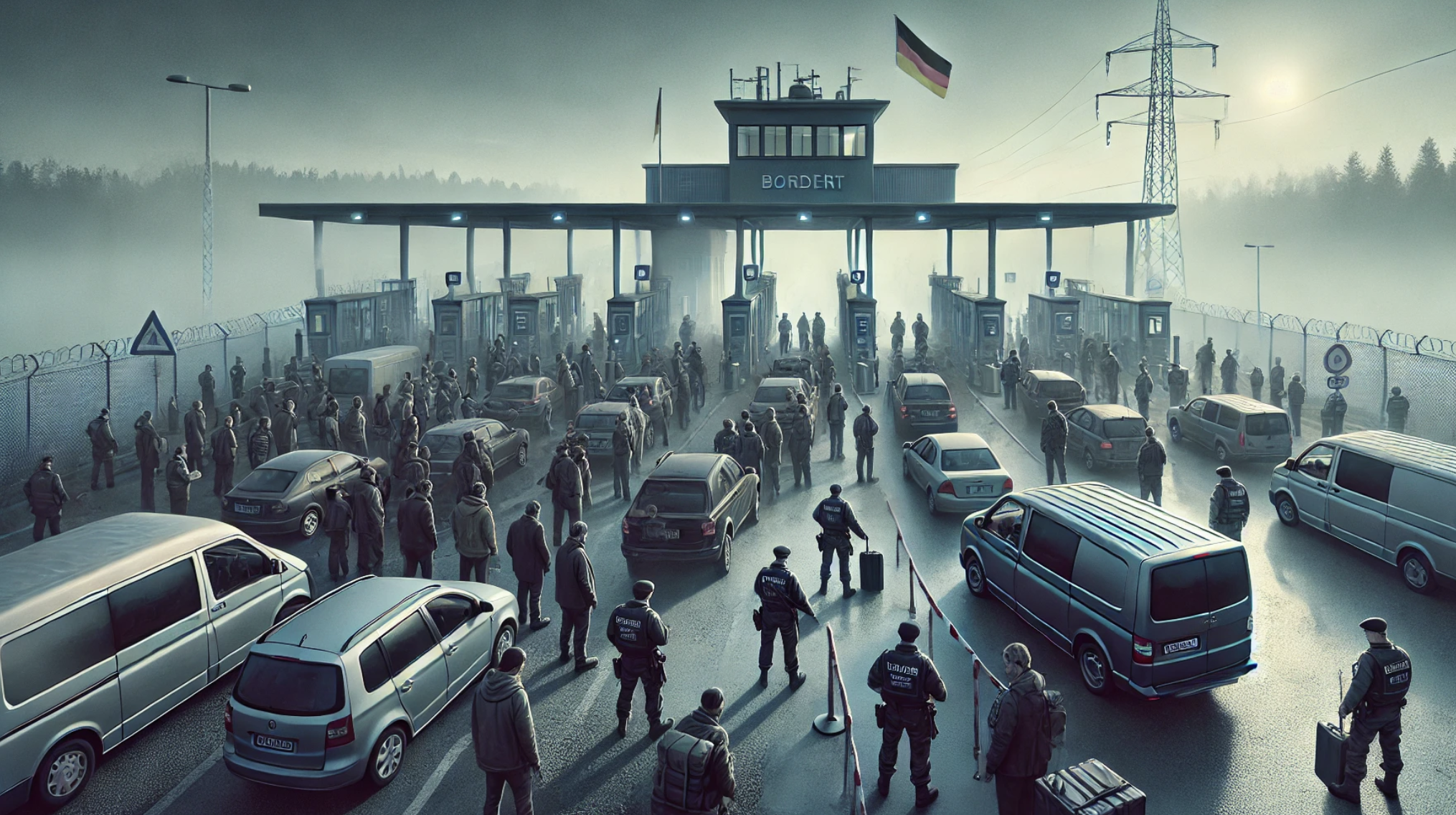Germany Extends Border Controls as Migration Crisis Deepens

Germany has decided to extend its temporary internal border controls for another six months, keeping strict checks in place until September 15, 2025. Chancellor Olaf Scholz announced the decision on February 12, stating that the measure remains essential to combat irregular migration and cross-border crime.
“Today, we have again ordered temporary controls at all German borders for six months and notified the European Commission,” Scholz stated.
Germany’s Interior Minister Nancy Faeser defended the extension, emphasizing that border checks remain necessary and effective.
“We are stopping human traffickers who brutally turn people into commodities and smuggle them across borders. And we are putting a stop to criminals and extremists. We will continue working in close coordination with our neighboring countries – without dangerous unilateral actions and in accordance with European law,” Faeser declared.
Why Did Germany Extend Border Controls?
The decision is directly linked to a surge in irregular migration. Since the introduction of border controls in September 2024, German authorities have:
- Detected 80,000 irregular entries;
- Arrested 1,900 human traffickers;
- Denied entry to 47,000 individuals without valid documents.
Initially set to expire on March 15, 2025, the controls were introduced in response to the rising influx of migrants and growing security concerns.
EU Concerns: A Blow to Free Movement?
Germany’s move has sparked concerns among EU member states, as it directly challenges the Schengen Area’s core principle of free movement. Although temporary border controls are legally permitted in cases of security threats, critics argue that Germany’s long-term extension normalizes emergency measures and sets a dangerous precedent.
Several EU countries, including France, Austria, and Poland, have expressed concerns over Germany’s unilateral approach.
"We understand Germany’s concerns about irregular migration. However, long-term border controls should be a collective EU decision, not a unilateral measure," said an EU diplomat who requested anonymity.
What Are the Economic & Political Consequences?
The extension of border checks could impact trade, tourism, and border communities. Logistics companies warn that freight and passenger transport delays will increase costs and disrupt supply chains.
Additionally, the move may complicate asylum applications, making it harder for legal migrants to reach Germany.
Germany’s decision signals a deepening migration crisis in Europe and growing divisions within the EU. While Berlin prioritizes strict security measures, this risks diplomatic tensions and further fragmentation of the Schengen Area.








